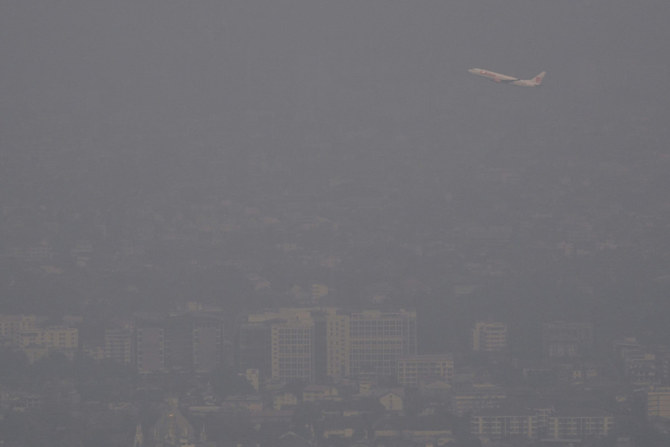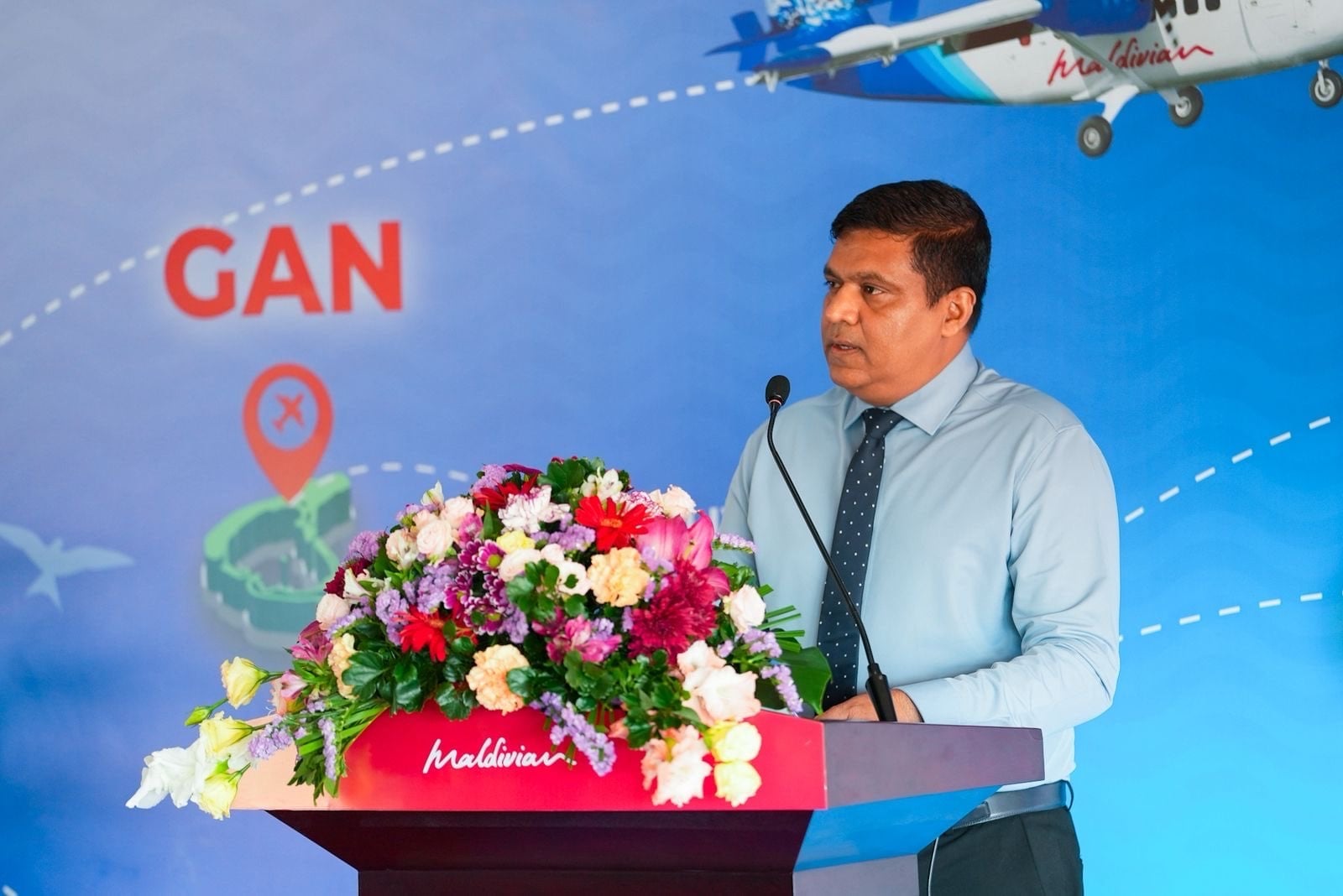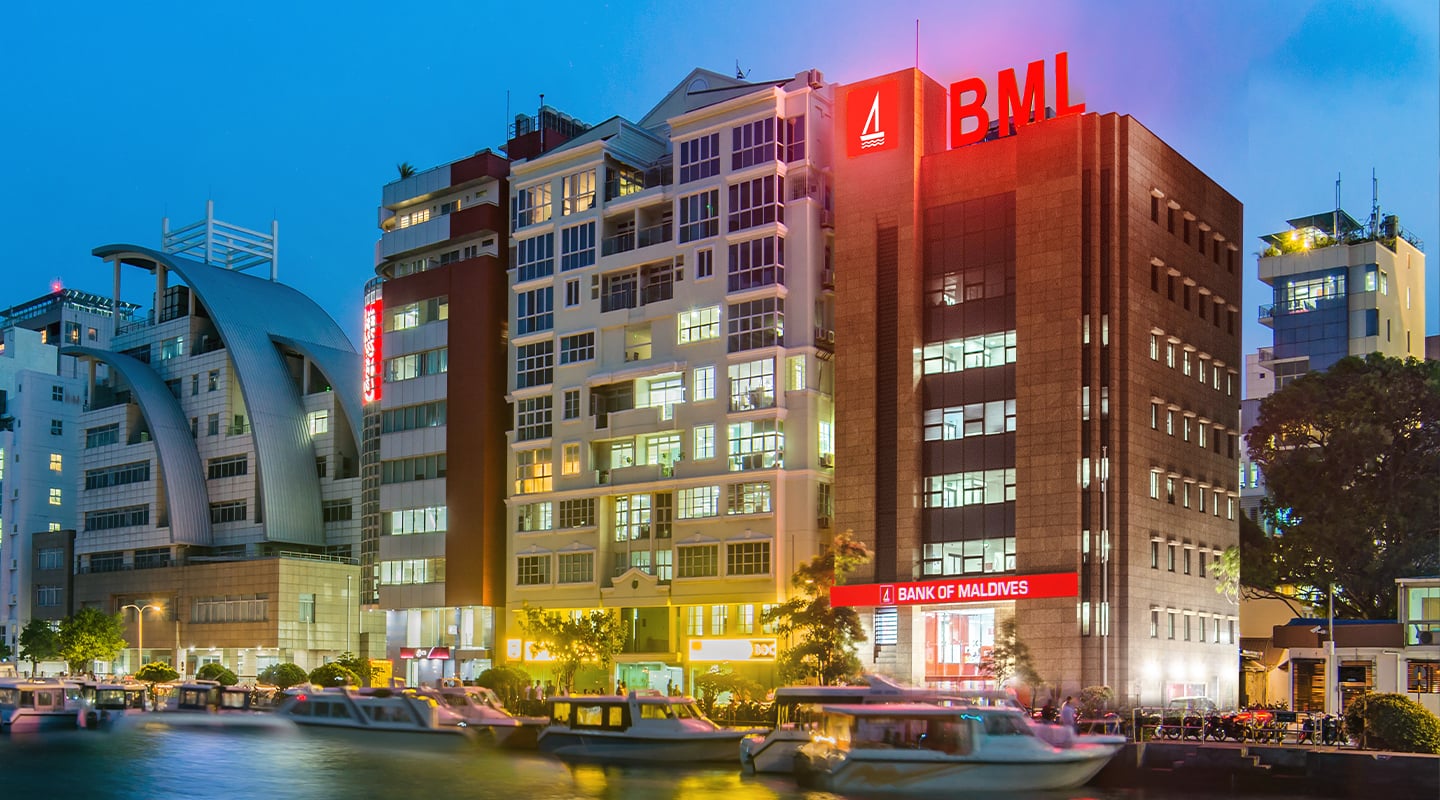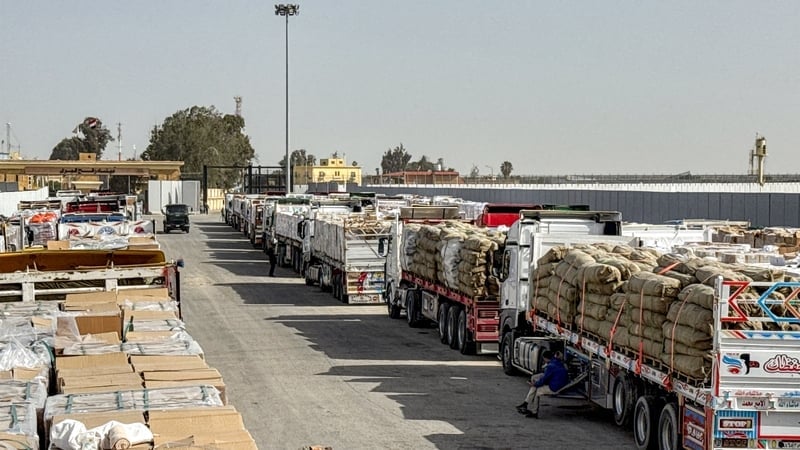Chiang Mai, a beloved tourist destination in Thailand celebrated for its natural splendor, found itself enveloped in a dense haze of smog on Friday, posing a significant challenge to both residents and visitors amidst deteriorating air quality. The usually picturesque northern city was shrouded in a blanket of toxic smog, raising concerns about the health implications of prolonged exposure to polluted air.
According to data from the air monitoring website IQAir, Chiang Mai emerged as the world's most polluted city early on Friday, with alarming levels of PM2.5 pollutants detected in the atmosphere. These microscopic particles, known for their ability to penetrate the bloodstream through the lungs, soared to levels classified as "very unhealthy," surpassing the World Health Organization's annual guideline by more than 35 times.
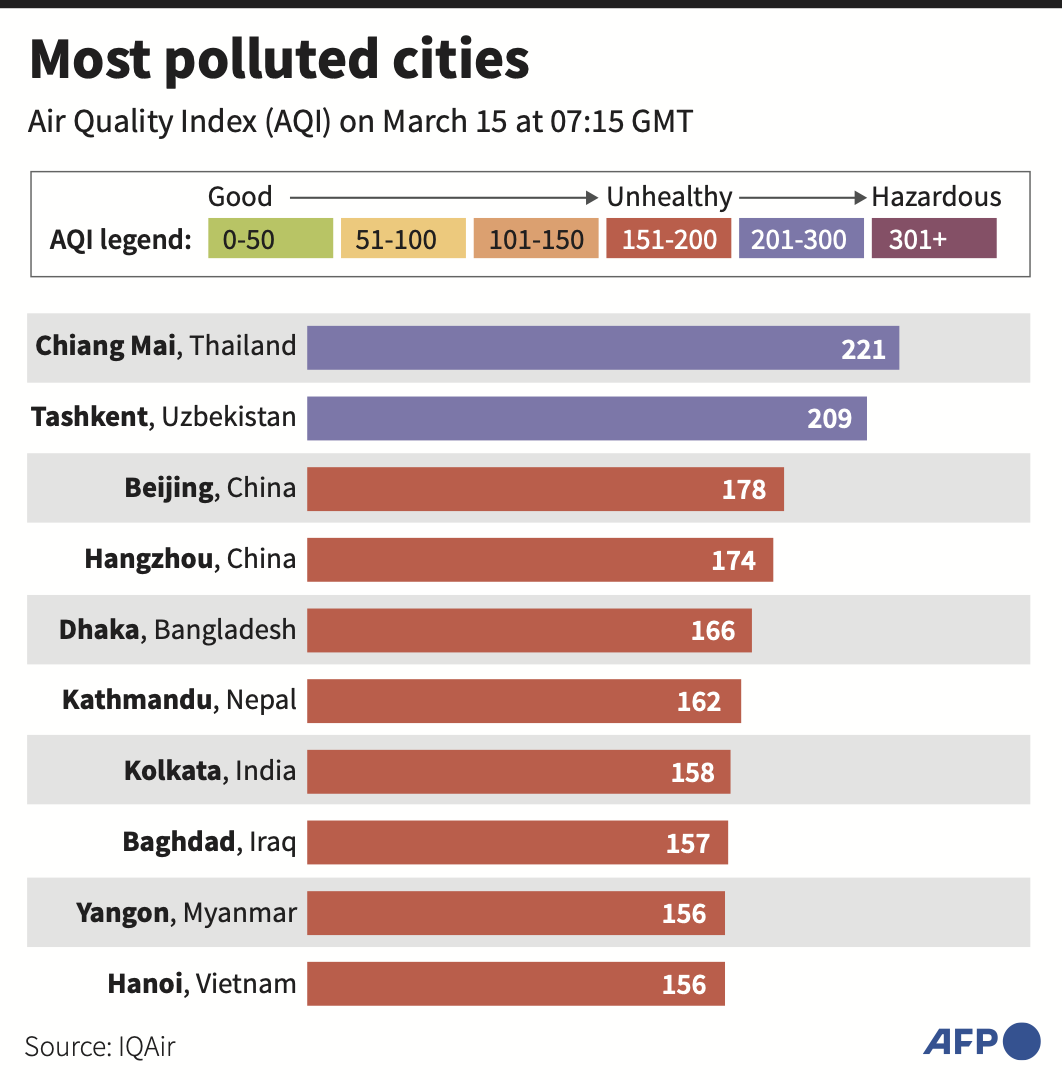
The hazardous conditions prompted widespread discomfort and respiratory issues among residents and visitors alike. Kamol, a 62-year-old orange seller at the city's Warorot Market, expressed his apprehension, stating, "It’s very high. All I have is this mask which is the same one I used for Covid." The alarming levels of pollution underscored the urgent need for concerted action to address the root causes of air pollution in Chiang Mai.
Various factors contribute to the annual occurrence of high pollution levels in Chiang Mai, including agricultural practices such as crop burning to clear land, as well as forest fires and exhaust fumes. These activities exacerbate the already precarious air quality, posing significant health risks to the city's inhabitants and visitors.
In response to the escalating crisis, the Thai government has taken steps to address the issue, with Prime Minister Srettha Thavisin's cabinet approving a Clean Air Act in January. However, the recent episode of severe smog highlights the pressing need for more comprehensive and immediate measures to mitigate the adverse effects of pollution in Chiang Mai.
According to data from the air monitoring website IQAir, Chiang Mai emerged as the world's most polluted city early on Friday, with alarming levels of PM2.5 pollutants detected in the atmosphere. These microscopic particles, known for their ability to penetrate the bloodstream through the lungs, soared to levels classified as "very unhealthy," surpassing the World Health Organization's annual guideline by more than 35 times.

The hazardous conditions prompted widespread discomfort and respiratory issues among residents and visitors alike. Kamol, a 62-year-old orange seller at the city's Warorot Market, expressed his apprehension, stating, "It’s very high. All I have is this mask which is the same one I used for Covid." The alarming levels of pollution underscored the urgent need for concerted action to address the root causes of air pollution in Chiang Mai.
Various factors contribute to the annual occurrence of high pollution levels in Chiang Mai, including agricultural practices such as crop burning to clear land, as well as forest fires and exhaust fumes. These activities exacerbate the already precarious air quality, posing significant health risks to the city's inhabitants and visitors.
In response to the escalating crisis, the Thai government has taken steps to address the issue, with Prime Minister Srettha Thavisin's cabinet approving a Clean Air Act in January. However, the recent episode of severe smog highlights the pressing need for more comprehensive and immediate measures to mitigate the adverse effects of pollution in Chiang Mai.



